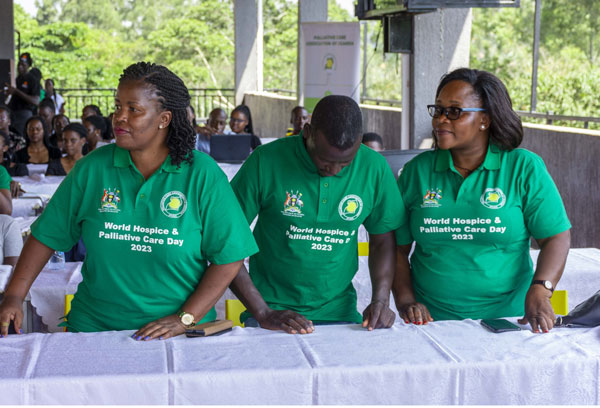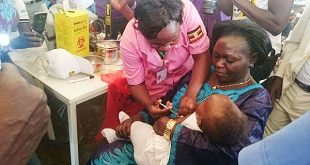
Kampala, Uganda | THE INDEPENDENT | According to the recent Lancet Commission report, only 11 percent of people in Uganda who need palliative care services can access it. This detail came up as Uganda joined the rest of the world to commemorate the World Hospice and Palliative Care Day.
Palliative care is a specialized form of medical care that focuses on providing relief from the symptoms and suffering associated with serious illnesses, particularly those that are life-threatening.
Mark Donald Mwesiga, the Executive Director of the Palliative Care Association of Uganda told journalists at Taibah International School in Bwebajja over the weekend that for every population, 1 percent will need palliative care.
Its primary goal is to improve the quality of life for patients and their families by addressing physical, emotional, and psychological needs.
He noted that with over 45 million people, most Ugandans are in their homes, and must visit the hospital since Uganda’s healthcare system is not structured to provide care at people’s homes. Mwesiga urged the Ministry of Health to integrate home care into healthcare services. This step aims to alleviate the burden on hospitals by allowing patients to receive care in the comfort of their homes.
Mwesiga also noted the need for increased government funding for palliative care services. While the government already supports the procurement of oral liquid morphine, a medication used to relieve severe pain, there is a call for additional investments to ensure comprehensive palliative care, including essential accompanying medicines.
Furthermore, the absence of a palliative care policy is being addressed as a challenge. Mwesiga mentioned the need to improve the resources allocated to healthcare by 2.5 billion, suggesting that this allocation should be increased by at least 7 percent over time.
Dr. Moses Muwanga, the Assistant Commissioner of Clinical Service in charge of palliative care from the Ministry of Health, noted the rising prevalence of non-communicable diseases in Uganda. This underscores the importance of palliative care services. Progress has been made in expanding these services, with more districts now incorporating palliative care into their healthcare structures.
Dr. Muwanga also said that the director general of health services has directed all hospitals to open palliative care services. Palliative care has now been incorporated into the Ministry of Health structures, and positions are being created to be filled by palliative care specialists.
Annet Nanyonjo, the head teacher of Taibah International School, has emphasized the positive impact of introducing palliative care education to learners. The school has even established a compassionate community club, fostering a culture of care and support for those in need.
These efforts reflect a growing commitment to improving palliative care services in Uganda, ensuring that more people in need can access the care and support they require. It’s a step in the right direction toward enhancing the quality of life for those facing serious illnesses.
****
URN
 The Independent Uganda: You get the Truth we Pay the Price
The Independent Uganda: You get the Truth we Pay the Price



And when they need support to breath where should they go?
“No precedent to go to ICU”
Director even when there is no hope I have a right to cling to life, just to see another Sun rise, to listen to a nice hym once more and possibly get to know results of an upcoming game
“I will smile to the last day”
Words of a knowledgeable terminal care patient